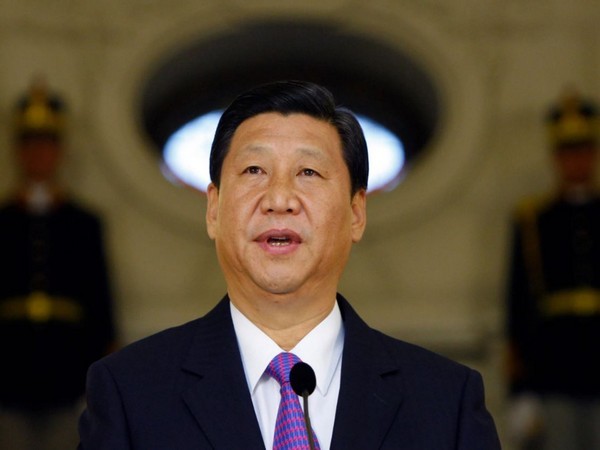
Xi stresses sci-tech self-strengthening at higher levels
May 29, 2021
Beijing (China) May 29: President Xi Jinping on Friday called for accelerated efforts in building China into a leader in science and technology and achieving sci-tech self-reliance and self-strengthening at higher levels.
Xi, also general secretary of the Communist Party of China (CPC) Central Committee and chairman of the Central Military Commission, made the remarks while addressing a meeting conflating the general assemblies of the members of the Chinese Academy of Sciences and the Chinese Academy of Engineering (CAE), and the national congress of the China Association for Science and Technology (CAST).
Sci-tech self-reliance and self-strengthening should always be considered a strategic support for national development, he said.
Xi said scientific and technological development must target the global sci-tech frontiers, serve the main economic battlefields, strive to fulfill the significant needs of the country and benefit people's lives and health.
Scientists and engineers must closely follow current trends, take the initiative, confront problems head-on, and overcome difficulties, he added.
Xi said the meeting is an important occasion to discuss the country's plans for promoting sci-tech innovation and development, as China is on a new journey to fully build a modern socialist country.
On behalf of the CPC Central Committee, he extended congratulations to the meeting, and greetings to professionals serving at various sci-tech posts.
Noting the CPC has always attached great importance to science and technology, Xi said sci-tech innovation has been placed at the core of China's overall development since the 19th CPC National Congress in 2017.
He praised the progress made in sci-tech innovation, basic research, original innovation, strategic sci-tech and high-end industries, as well as the significant role of science and technology in containing the COVID-19 epidemic.
Major progress has been made in basic research and original innovation, including quantum information, stem cells, and brain science. The Chang'e-5 probe has brought back the country's first samples collected from the moon. China's first Mars rover started exploring the red planet.
China's high-end industries, including large passenger aircraft and magnetic-levitation train industries, saw fast development. Industries related to artificial intelligence, digital economy, 5G, and electric vehicles are thriving.
Science and technology have provided firm support for the country's response to COVID-19. China succeeded in isolating the world's first novel coronavirus strain and also developed various medicines and vaccines.
Xi urged China's sci-tech professionals to assume the responsibilities of the times and strive for sci-tech self-reliance and self-strengthening at higher levels.
KEY TASKS IDENTIFIED
Xi called for resolute efforts to achieve breakthroughs in core technologies in key fields.
Sci-tech breakthroughs should tackle the most pressing issues with a focus on meeting the country's needs, both urgent and long-term, he said.
Xi also called for enhancing the overall efficacy of the national innovation system, calling on national laboratories, national scientific research institutions, high-caliber research-oriented universities and leading sci-tech enterprises to shoulder their responsibilities in the drive.
Xi stressed the need to advance the reform of the sci-tech system to form a basic system of supporting innovation in all aspects.
The new system concentrating nationwide effort and resources on key national sci-tech undertakings should be improved in the context of the socialist market economy, while more autonomy should be given to research institutions, he said, adding that scientists must be further empowered to decide their technical routes and how to use research funds.
Xi called for more participation in global sci-tech governance with a focus on issues such as climate change and human health, as well as more joint research and development with scientific researchers from other countries.
China's science and technology should make greater contributions to building a community with a shared future for humanity, he said.
In building a global center of talent, the country should strive to cultivate top sci-tech talent with global influence and more high-caliber technical and skilled professionals, he said.
Highlighting the role of the two academies, Xi called on them to solve major original scientific problems and overcome challenges in core technologies in key fields that hinder China's development.
Xi highlighted the duty of the CAST to rally sci-tech workers closely around the Party, urging the association to carry forward the spirit of scientists, and promote openness, trust, and cooperation with the international sci-tech community.
"Members of the two academies are the treasure of the country, the source of pride of the people, and the glory of the nation," Xi noted, calling on them to respond to the Party's call, pursue excellence, and hold fast to academic morality and research ethics.
Friday's event, attended by about 3,000 sci-tech professionals and officials, was presided over by Premier Li Keqiang, a member of the Standing Committee of the Political Bureau of the CPC Central Committee.
Li Zhanshu, Wang Yang, Wang Huning, Zhao Leji and Han Zheng -- all being members of the Standing Committee of the Political Bureau of the CPC Central Committee -- also attended the meeting.
Li Keqiang said Xi's speech made clear the major tasks in accelerating the building of China's sci-tech strength. The spirit of the speech must be thoroughly implemented.
Chinese scientists were encouraged by Xi's speech. Liu Zhongmin, an academician of the CAE, said he expects a boom of innovation with more supporting policies rolled out.
"Through self-reliance and self-strengthening, and by following the leadership of the Party, our country will make tremendous development achievements," said Wang Guodong, a professor at Northeastern University and also an academician of the CAE.
"As a major country, China will contribute to humanity's wellbeing with its science and technology," Wang said.
Source: Xinhua









